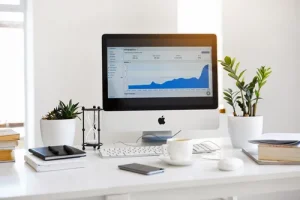Many can find industrial investment assets in a variety of sizes and uses. Commercial and industrial assets can be anything from a small industrial space to a huge distribution and logistics center.
The state of roads is an important factor to consider for investors in industrial property. They made connectivity to cities through motorways and freeways, which connect prospective tenants with ports and docks for freight. The economics, the accessibility to essential infrastructure, and the interest rate are key properties market drivers.
Consider These Before Investing in Industrial Real Estate
If you consider investing in real estate properties, check this region but remember that this is an investment that you should not make hastily. Balances and checks are described below before buying during the due diligence phase. There are 9 points that you shouldn’t overlook:
1. Appraisal and Survey
To determine the value, get an exact copy of the latest appraisal. The appraisal can provide valuable information, including comparable information about the building.
The survey will assist in determining the inclusions in the purchase that may be different from the knowledge that the current owner of the building knows about. The intent of being aware of all easements and restrictions can assist in determining if the property is appropriate for its purpose.
Check out firms like Cushman & Wakefield to learn more about commercial and industrial real estate.
2. Floor/Site Plan, Engineering and Environmental Reports
If you can, get a DVD that contains CAD drawings. It will assist you in planning for the future requirements of space. Engineering and environmental reports are always a great source of information and understanding.
3. A History of Operating Expenses
To calculate the net operating profit of the property, gather data for at least the past three years. The more precise and good the information is, the more confident that your projections of cash flows will be.
4. Budget and Capital Improvements History
What is the Pro-forma for this year’s budget? Does the current owner plan to earn profits? Have the structures been maintained? Are there any areas you need to fix now, or is it due to being done shortly?
5. Title Policies, Deeds, and All Contracts
Verify that the title is ad-hoc and not subject to any limitations. Find the documents for the building contract for vending services, such as overnight deliveries and alarm monitoring.
6. Contracts and Certificate of Occupancy
It also includes unrecorded and registered agreements that grant rights to a property to any person other than the current owner via an easement, license, or another way. Do you have proof of occupancy? If not, does it need to be?
7. Building Permits and Taxes
Get copies of all permits that issued major alterations, additions, or repairs after the certificate of occupancy.
Get proof of the most up-to-date tax invoices for the property and any new notices regarding new or pending assessments that impact the property. Learn about the tax burden once you’ve bought the property.
8. Service and Maintenance Contracts
Examine all maintenance and service contracts in Newfoundland, and note contact names and telephone numbers, such as snow plowing, landscaping cleaning, pest control garbage, disposal sprinkler systems, alarm systems, or security.
9. Guarantees and Current Leases
Learn about the warranty for the building, which includes ones for the roof, HVAC units, and other things.
What is the average rent roll period? Are you expected to find tenants immediately? What are the current costs for the lease?
This list does not constitute legally binding advice. However, reading these subjects before deciding to invest in industrial property may place you in a more advantageous position for bargaining.



